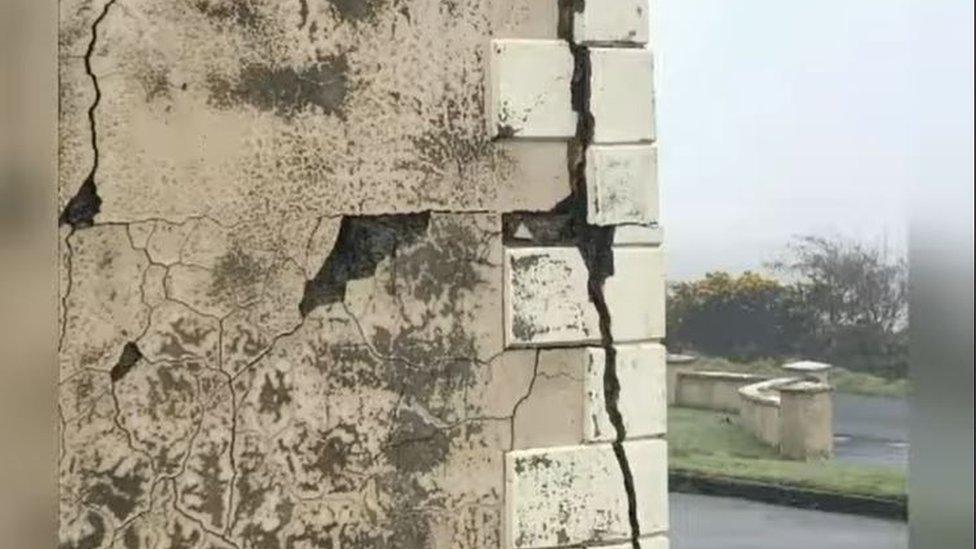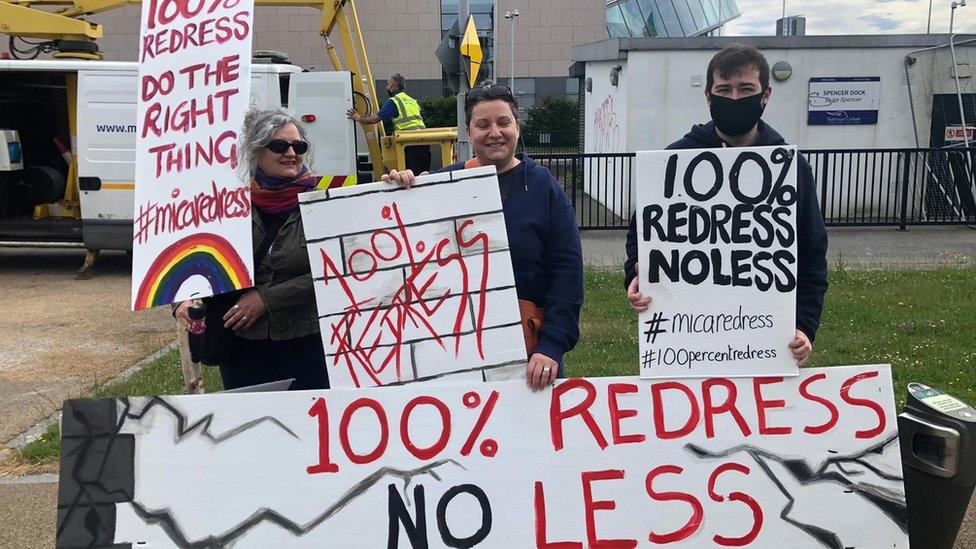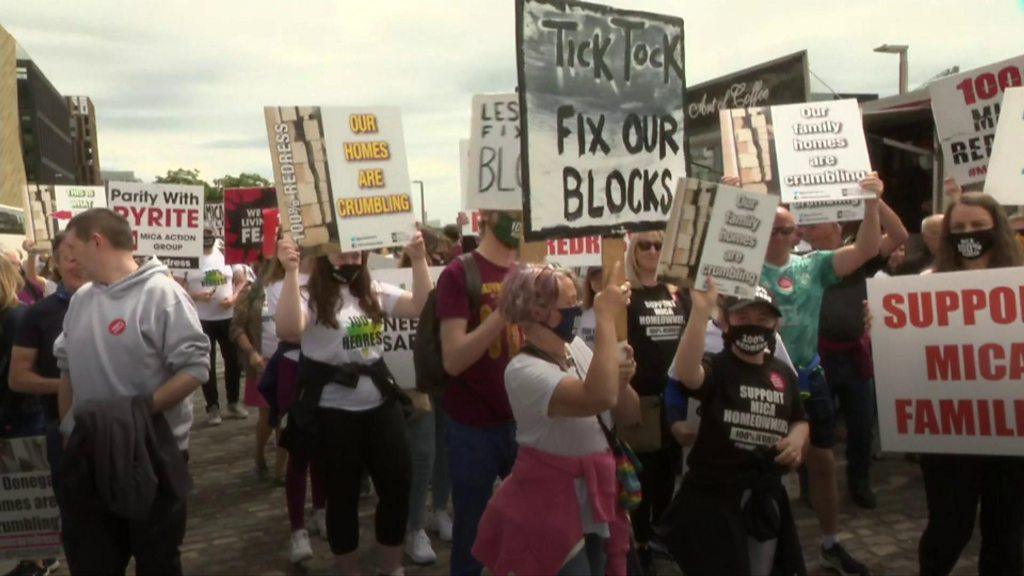Mica: Irish ministers agree compensation scheme
- Published

The mineral mica absorbs water, which can cause walls to crack and begin to crumble
Irish ministers have agreed a compensation scheme for people whose homes have crumbled because of mica.
The mineral, which affects thousands of homes in the Republic of Ireland, absorbs water, which can cause walls to crack and begin to crumble.
The Irish cabinet said the scheme was to be capped at €420,000 (£357,500).
Homeowners, mainly in County Donegal but along the west coast, complained their homes were crumbling before their eyes due to the defective mica blocks.
They have blamed the light touch regulation of the Celtic Tiger period before the country's economic crash in 2008 for their problems.
The home owners have widespread support from their elected representatives and have taken their campaign for 100% redress to the streets of Dublin.
However, the Irish cabinet - also mindful of the public purse - has resisted those calls with ministers on Tuesday agreeing a compensation scheme capped at €420,000.

Campiagners have previously called on the Irish government to provide 100% redress to mica-affected homeowners
The final cost of the scheme could run to more than €2 billion, RTE News reported.
Minister for Agriculture Charlie McConalgoue, who is a Donegal TD (member of the Irish parliament), said he believed "a very strong outcome" had been achieved for those affected.

In 2016 an expert panel was set up to investigate problems with homes affected by mica and another mineral, pyrite.
That followed years of campaigning by an action group and led, in 2019, to the Irish government approving a €20m (£17.2m) repair scheme.
But many homeowners said that scheme was not fit for purpose.
Under the initial scheme, eligible homeowners would pay for 10% of repairs, plus any outstanding mortgage payments on the home, with the government covering 90% of the cost.
Protesters called for the Irish government to fully compensate mica-affected home owners, and wanted 100% redress like that awarded to Dublin homeowners in the pyrite remediation scheme.

Ali Farren has a house in Malin Head, County Donegal, which is due to be demolished because of mica-affected blocks.
Mr Farren said it was too soon to pass judgement on the scheme announced on Tuesday, but said the "devil will be in the detail".
"There is a positivity here, we've got something, but is that something going to be enough," Mr Farren told BBC Radio Foyle.
"We built our house to be a forever home, but at the moment I don't know what kind of forever home I will be able to build the second time around.
"It's my home and I would like to build something exactly the same again, but I don't know what I will be able to afford under the current scheme."
He said that "building costs have skyrocketed" and with the cost of labour also on the rise it will be difficult to see how much that cap will affect his rebuild.
Mr Farren, who is currently still residing in his home, said he was unsure whether his house will remain standing until the scheme is finally signed off into legislation.
Related topics
- Published15 June 2021

- Published15 June 2021
